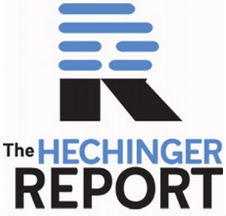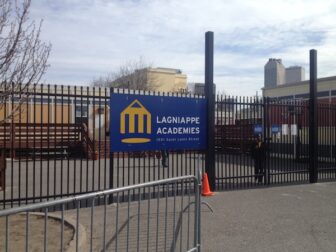The state school board recently decided that two New Orleans charter schools were failing their children so badly that their contracts wouldn’t be renewed after this academic year. But there’s a remarkable difference in what will happen to the students at these two sites.
One school will cease to exist, scattering its pupils to wherever they can find seats, much to the frustration of parents who appreciate the school. The other will be taken over by a school board already operating two successful charters in the city, selected in part by the parents of the failing school.
The story of the two schools highlights the fissures in a national debate about what to do with charters that don’t perform well. Charter advocates nationwide have called for stricter rules to make it easier to cull failing charters from the ranks, but in many communities, closing down schools – even relatively new charter schools – has sparked conflict and infuriated parents. And as the different trajectories of the two charters here demonstrates, deciding which schools deserve a second chance and which don’t is also fraught.

Andrew H. Wilson Charter School could not get its letter grade out of the basement, falling to “F” this year after three years with a “D” while in operation in the Broadmoor neighborhood. Administratively, the school received a poor financial management score. It has about 625 students in kindergarten through eighth grades.
Since opening in 2010, Lagniappe Academies in Treme lifted its school score from failing to a “B,” though it dropped back to a “C” in the most recent scoring. But state officials said it failed to provide special-education services to some of its students, and that administrators tried to cover up that deficiency when investigators arrived. About 160 students attend the kindergarten-through-fourth-grade school.
The state-run Recovery School District oversees both and had the final authority on their fate: Wilson stays; Lagniappe goes. And as the old real-estate saying goes, it was all about location, location, location. Or the lack of location, to be specific.
There is no Lagniappe campus for anyone to take over, RSD Deputy Chief of Staff Laura Hawkins said. Wilson is housed in school building that reopened in 2010 after a $30 million facelift. According to a report from The Times-Picayune the building was so drastically altered that RSD officials said it qualified as a new building.
Lagniappe owns modular buildings that sit on land that is leased only through the end of the school year. The landlord didn’t offer a lease renewal, board member Dan Forman said.
Lagniappe was twice offered a school site by the RSD. Hawkins says the RSD in 2013 offered the Gaudet campus in eastern New Orleans.
“They turned down the offer in the media, but did not formally communicate with us,” she said.
“The remedy for a failed charter school should not be we shut the school down,” — parent advocate Karran Harper Royal
Lagniappe board members say the RSD offered them the John Dibert campus, but it was unclear how long they would be there. Besides, Lagniappe officials said they could not afford the necessary repairs for the aging school.
Hawkins says the district offered Dibert as temporary space and Wilson’s previous temporary home, the McDonogh No. 7 campus, as a permanent location. Lagniappe rejected both.
Parents at Wilson and Lagniappe want to preserve their school communities.
Wilson parents Sheana Turner and Dana Wade said when charter operators came to tour Wilson, they worried the organizations were more interested in the shiny, upgraded facility than their children’s education.
“Yes the building is nice … but there’s children inside of the building, there’s minds that need to be fed,” Wade said.
When organizations were touring the school, Wade said school staff put up the words “not just a building” on Wilson’s illuminated sign.
Meanwhile, Lagniappe parents seem to have the opposite problem — they don’t have a physical building to rally around.
But Lagniappe parents like Alicia and Anthony Parker, who had to tell their five-year-old son his school is closing, chose the school for its programming — not the facility.
Board Vice Chairman Dan Henderson said Lagniappe is at the end of the line. Without guarantee of a building next year, the board decided it had neither the money nor time to engage in a legal battle with the state. They also doubted that a lawsuit could produce results before the summer.

At Wilson, the board and parents initially planned to fight the state action. But they eventually agreed to the takeover with the provision they could help select a new operator for the school.
The campus next year will be run by InspireNOLA, which runs two highly rated charter schools under the Orleans Parish School Board, and Wilson will transfer back to local control. The School Board this month approved an “automatic replication” request. That’s a move that allows high-performing charter operators to open another school without going through the traditional yearlong charter approval process.
Charter schools operate with a great deal of autonomy, making their own curriculum, staffing and school scheduling decisions. However, they must answer to an authorizer for overall financial, operational and academic results. The state’s Board of Elementary and Secondary Education authorizes charters for the Recovery School District. The Orleans Parish School Board can also authorize charters.
In the past three years, several charter schools have closed throughout the city. Some of them were taken over by new charter operators, while others closed completely. There’s little obvious consistency to those not intimately familiar with the education bureaucracy in New Orleans.
And that’s unfair to students and their families, parent advocate Karran Harper Royal said.
“The remedy for a failed charter school should not be we shut the school down,” Royal said.
She says this creates an unstable environment for kids.
“The remedy should be we shut the charter operator down,” she said. “We [the state] step in until we can select a new operator.”
Parents at the school also wondered why the state school board didn’t give the Lagniappe board a chance to change school leaders, removing those who violated the special-education rules.
“It is not within BESE, the department, or the RSD’s purview to demand specific staff or board changes,” Hawkins said. “The tools available to us include renewal and non-renewal and that is what was done in this situation.”
What about the fact that Lagniappe was a higher scoring school?
Hawkins said state education officials “lost confidence in the ability of Lagniappe’s leadership to serve all students.”
“Renewal is based on much more than letter grade.”
Wilson parents were generally pleased with the selection of InspireNOLA and told BESE members they were happy they were allowed to participate.
Wade has a little advice for Lagniappe parents.
“I just wish the parents at Lagniappe the best,” Wade said. “And I want them to not give up.
“Don’t give up. Keep fighting.”

